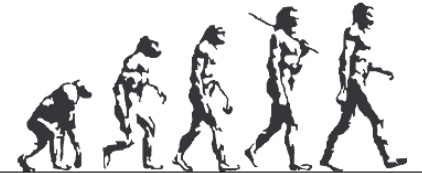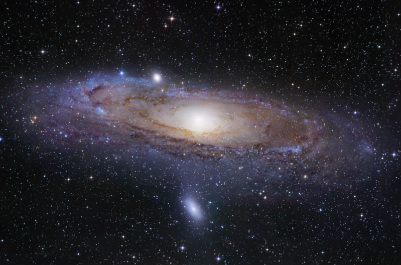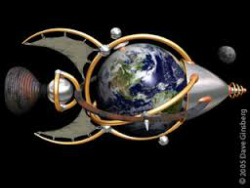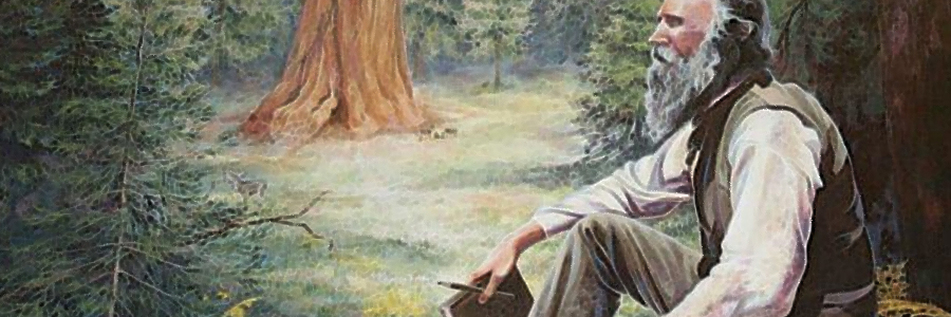Natural Sciences
Natural science is examining the laws of the tangible world as a philosopher.
After all, perhaps the most powerful question uttered by the Philosophes was simply, "Why?" This is the foundation for every theory, observation, challenge, and eureka moments that increase the amount we know, while enlightening us about what we don't know. The natural world around us contain these profundities in every way, if we look close enough.
Natural Sciences I
Scientific Inquiry and Environmental Awareness
Scientific Inquiry and Environmental Awareness

The first year of Natural Science provides the groundwork for scientific-based inquiry into ecological systems.
In their first semester, YuCai International Course students will begin to understand process-based scientific inquiry, and the evolution of western traditions in scientific thought. Consideration is given to writings of pioneers in the scientific tradition, including Aristotle and Francis Bacon, as well as the prophetic writings of science fiction's Ray Bradbury.
Gao Yi students in their second semester will focus on topics in Ecology and man’s relationship with nature. Topics covered will include environmental pollution, sustainable agriculture practices, and urbanization among others. The readings will address these issues in a variety of styles, including fiction, scientific articles, poetry, and humorous essays, as part of YCID’s program of comprehensive English support in all classes and subjects.
Additionally, Gao Yi students will have a primary role in YCID’s annual Dragon & Eagle festival. In this event they will participate in a dialogue with other international students, and recognized experts in the field, to discuss current environmental issues and possible solutions to identified problems.
In their first semester, YuCai International Course students will begin to understand process-based scientific inquiry, and the evolution of western traditions in scientific thought. Consideration is given to writings of pioneers in the scientific tradition, including Aristotle and Francis Bacon, as well as the prophetic writings of science fiction's Ray Bradbury.
Gao Yi students in their second semester will focus on topics in Ecology and man’s relationship with nature. Topics covered will include environmental pollution, sustainable agriculture practices, and urbanization among others. The readings will address these issues in a variety of styles, including fiction, scientific articles, poetry, and humorous essays, as part of YCID’s program of comprehensive English support in all classes and subjects.
Additionally, Gao Yi students will have a primary role in YCID’s annual Dragon & Eagle festival. In this event they will participate in a dialogue with other international students, and recognized experts in the field, to discuss current environmental issues and possible solutions to identified problems.
Goals
Students will gain familiarity with historical scientific traditions and gain a deeper understanding of humans' relationship with nature; students will be able to apply theoretical viewpoints to scientific data; students will be able to articulate and discuss scientific content; students will learn to write essays conforming to academic standards.
Students will also engage in community-based laboratory science projects related to topics in environmental sciences such as creating displays for the school, and creating and maintaining an organic garden.
Main Texts
Tests and Assessments
In the Natural Sciences, Great Books faculty leaders will work with students on articulating scientific content and how it relates to historical scientific traditions and conversations about nature, conservation, and environmental protection. Homework assignments, short essays, shared-inquiry discussions, a mid-term test, and a final comprehensive semester essay constitute the course evaluation.
Grading
Oral Participation (25%) Homework (15%) Essays (20%) Papers (20%) Test Scores (20%)
Student self-assessments in Collaboration and Individual Contribution will also be measured.
Students will gain familiarity with historical scientific traditions and gain a deeper understanding of humans' relationship with nature; students will be able to apply theoretical viewpoints to scientific data; students will be able to articulate and discuss scientific content; students will learn to write essays conforming to academic standards.
Students will also engage in community-based laboratory science projects related to topics in environmental sciences such as creating displays for the school, and creating and maintaining an organic garden.
Main Texts
- What on Earth? An Ecological Reader. Selections from The Best American Science and Nature Writing series.
- Aristotle, Parts of Animals
- Francis Bacon, Novum Organum
- Rachel Carson, Silent Spring
Tests and Assessments
In the Natural Sciences, Great Books faculty leaders will work with students on articulating scientific content and how it relates to historical scientific traditions and conversations about nature, conservation, and environmental protection. Homework assignments, short essays, shared-inquiry discussions, a mid-term test, and a final comprehensive semester essay constitute the course evaluation.
Grading
Oral Participation (25%) Homework (15%) Essays (20%) Papers (20%) Test Scores (20%)
Student self-assessments in Collaboration and Individual Contribution will also be measured.
Natural Sciences II
Biology and Physics
Biology and Physics

The second year of Natural Science provides an inquiry into biological organizational systems, as well as the physical world. In their first semester of Gao Er, YuCai International Course students will begin to explore the interaction among living organisms. Consideration is given to the level of genetic units within the organism, the level of species, the ecological level, and the global level.
Themes are organized so as to provide movement from general theoretical viewpoints to biological precision and back to the more general. The relationships between evolution, on the one hand, and cellular organization, genetics, the environment, animal behavior, and philosophical thought, on the other hand, are foci for discussion.
During their second semester, YCID Gao Er students will examine the history of developments in our study of the physical world. They will start with the original works of Aristotle, continuing on to classical physicists such as Isaac Newton and Galileo, and finally examining theories in modern physics such as special and general relativity, quantum theory, and current cosmological theories regarding the nature and history of the universe.
Organization: Readings are organized beginning with the ancient observations of the natural elements, leading into the discovery and systematic categorization of natural surroundings based on experimental theory and the reconstruction of inquiry. Students will engage in scientific philosophy and its underpinnings based on its language, truth and logic.
Themes are organized so as to provide movement from general theoretical viewpoints to biological precision and back to the more general. The relationships between evolution, on the one hand, and cellular organization, genetics, the environment, animal behavior, and philosophical thought, on the other hand, are foci for discussion.
During their second semester, YCID Gao Er students will examine the history of developments in our study of the physical world. They will start with the original works of Aristotle, continuing on to classical physicists such as Isaac Newton and Galileo, and finally examining theories in modern physics such as special and general relativity, quantum theory, and current cosmological theories regarding the nature and history of the universe.
Organization: Readings are organized beginning with the ancient observations of the natural elements, leading into the discovery and systematic categorization of natural surroundings based on experimental theory and the reconstruction of inquiry. Students will engage in scientific philosophy and its underpinnings based on its language, truth and logic.
Goals
Students will understand the history of modern scientific theories through original works, and they will be able to evaluate the soundness of such theories. Students will be able to discuss theoretical concepts and epistemology in scientific language. Students will use a wide range of scientific vocabulary and concepts through methods of reviewing and reinforcing activities.
Main Texts
Tests and Assessments
In the Natural Sciences, Great Books faculty leaders will work with students on articulating scientific content and how it relates to historical Western scientific traditions and conversations about nature, conservation, and environmental protection. Homework assignments, short essays, shared-inquiry discussions, a mid-term test, and a final comprehensive semester essay constitute the course evaluation.
Grading
Oral Participation (25%) Homework (15%) Essays (20%) Papers (20%) Test Scores (20%)
Student self-assessments in Collaboration and Individual Contribution will also be measured.
Students will understand the history of modern scientific theories through original works, and they will be able to evaluate the soundness of such theories. Students will be able to discuss theoretical concepts and epistemology in scientific language. Students will use a wide range of scientific vocabulary and concepts through methods of reviewing and reinforcing activities.
Main Texts
- The Nature of Life – Readings in Biology
- What’s the Matter? – Reading in Physics
- The Scientific Revolution, Robert Freeman
- Selections from Science Fiction Omnibus and The Best American Science and Nature Writing series
Tests and Assessments
In the Natural Sciences, Great Books faculty leaders will work with students on articulating scientific content and how it relates to historical Western scientific traditions and conversations about nature, conservation, and environmental protection. Homework assignments, short essays, shared-inquiry discussions, a mid-term test, and a final comprehensive semester essay constitute the course evaluation.
Grading
Oral Participation (25%) Homework (15%) Essays (20%) Papers (20%) Test Scores (20%)
Student self-assessments in Collaboration and Individual Contribution will also be measured.
Natural Sciences III
Ecology
Ecology

During the third and final year at YCID, students in Natural Science will explore fundamental ideas and questions in environmental science, ecology, and environmental ethics. The over-arching theme is sustainability.
Themes and essential questions are organized thus:
Readings in primary literature and exposure to multi-media texts are organized to follow the above thematic progression and show students that environmental philosophy can have useful, profound, and practical application.
Themes and essential questions are organized thus:
- Epistemology—how do we know what we know?
- Aesthetics of Nature—what does nature writing reveal in ways of viewing our relationship to the earth and universe?
- Global Ecosystems—how are the different environments on the planet interconnected?
- Deep Ecology—should we do something for the environment because it is good for us, or because it is good for the world?
- Climate Change—how valid are the issues of pollution, global warming, and the “zero waste” philosophy?
- Society—what kind of future should we create for our children; what is the best world we can create as responsible, global citizens?
Readings in primary literature and exposure to multi-media texts are organized to follow the above thematic progression and show students that environmental philosophy can have useful, profound, and practical application.
Goals
Students will learn the tenets of environmental philosophy and grapple with several of the problems threatening environmental degradation today. They will be able to discuss nuances of environmental ethics and how they can apply such ethics to contemporary society. Students will become familiar with concepts of current, college-level Environmental Science courses in Western universities. Students will produce a group video project based on the subjects in the course texts and class discussions.
Main Texts
Tests and Assessments
In the Natural Sciences, Great Books faculty leaders will work with students on articulating scientific content and how it relates to historical scientific traditions and conversations about nature, conservation, and environmental protection. Homework assignments, short essays, shared-inquiry discussions, a mid-term test, and a final comprehensive semester essay constitute the course evaluation.
Grading
Oral Participation (25%) Homework (15%) Essays (20%) Papers (20%) Test Scores (20%)
Student self-assessments in Collaboration and Individual Contribution will also be measured.
Students will learn the tenets of environmental philosophy and grapple with several of the problems threatening environmental degradation today. They will be able to discuss nuances of environmental ethics and how they can apply such ethics to contemporary society. Students will become familiar with concepts of current, college-level Environmental Science courses in Western universities. Students will produce a group video project based on the subjects in the course texts and class discussions.
Main Texts
- Keeping Things Whole: Readings in Environmental Science
- Principles of Environmental Science: Inquiry & Applications
- A Sand County Almanac, Aldo Leopold
- "What is Gaia?" James Lovelock
Tests and Assessments
In the Natural Sciences, Great Books faculty leaders will work with students on articulating scientific content and how it relates to historical scientific traditions and conversations about nature, conservation, and environmental protection. Homework assignments, short essays, shared-inquiry discussions, a mid-term test, and a final comprehensive semester essay constitute the course evaluation.
Grading
Oral Participation (25%) Homework (15%) Essays (20%) Papers (20%) Test Scores (20%)
Student self-assessments in Collaboration and Individual Contribution will also be measured.

